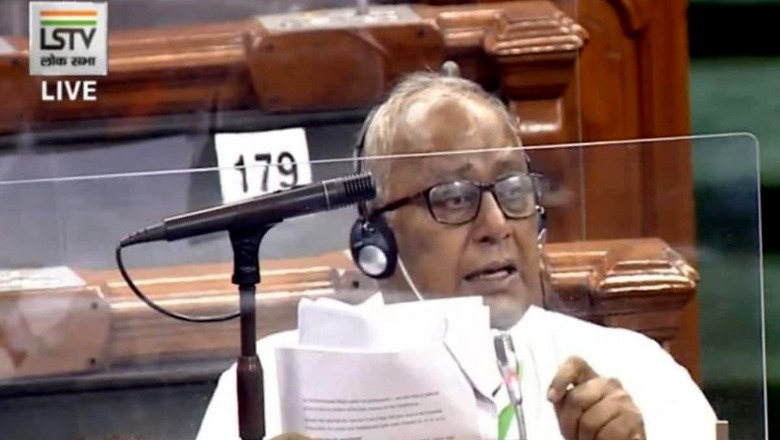
views
Expressing his concerns over the Foreign Contribution (Regulation) Amendment Bill 2020, Trinamool Congress (TMC) MP Saugata Roy said that the bill may hit NGOs and social welfare organisations like Missionaries of Charity in India, a Catholic religious congregation established in 1950 by Mother Teresa in Kolkata.
Speaking to News18, Roy called the bill “anti-democratic” and said that he would continue to oppose it till amendments were made in it. “It is actually a matter of concern because the BJP-led government is targeting only those NGOs which oppose their policies. I opposed this bill as I felt it is anti-democratic. I will continue to raise this issue till amendments were not made in it,” he said.
“NGOs like Amnesty International have already closed their operations in India. I have already raised the issues of noted lawyers Indira Jaisingh and Anand Grover. In 2016, the Home Ministry had cancelled the license of NGO ‘Lawyers Collective’. The Ministry had said that Jaisingh received foreign funds when she held the post of additional solicitor general, in violation of FCRA norms. However, Jaisingh refuted the allegation and said she was a public servant and not a government servant. Now, the Bill has changed ‘government servant’ into ‘public servant’ so that people like Indira Jaisingh, who are known for their fight for people’s freedom and women’s issues, are prohibited,” he added.
In the context of Missionaries of Charity, the Lok Sabha MP said that the government was running in an autocratic manner and wanted to control the funds received by the NGOs. “We all know the kind of excellent social work the Missionaries of Charity is involved in. It was set up by Nobel Peace Prize winner Mother Teresa. If things continue like this then one day the government will also create problems for Missionaries of Charity as they also receive foreign funds. The government is running like an autocrat and this can’t be tolerated as they want to control the funds that NGO receives,” Roy said.
Talking about his differences with the bill, Roy said, “As per the Bill, if any organisation receives foreign contributions, it cannot transfer that contribution to any other organisation. I think this will be a major blow to NGOs working collaboratively on various projects. This may also put foreign funding agencies or foreign grant-making organisations registered under FCRA in difficulty.”
“Not the least, the Bill says that people receiving foreign funds must produce their Aadhaar cards. The Supreme Court has said that the Aadhaar Card is not compulsory. It is a document only for identification of those receiving money under targeted public distribution. Why should you make the Aadhaar Card compulsory? It is only to keep a better control over these people,” he added.
According to the previous rule, money that came as foreign funds could be kept in any scheduled commercial bank or nationalised bank. “But it was amended and now the Bill says that all the money must come into an account of the State Bank of India in Delhi, which you can open from anywhere in the country, and from that account, the money can be transferred to any other account anywhere that the organisation opens. This is another way of controlling foreign contributions coming in, by having the account in only one specified account in one specified bank,” Roy said.
The UN High Commissioner for Human Rights Michelle Bachelet on Tuesday, October 20, expressed her concerns over the restrictions on foreign funding for the NGOs in India and the arrest of activists in the country. She urged the government to “safeguard the rights of human rights defenders and NGOs, and their ability to carry out their crucial work” on behalf of the many groups they represented.
“India has long had a strong civil society, which has been at the forefront of groundbreaking human rights advocacy within the country and globally. But I am concerned that vaguely defined laws are increasingly being used to stifle these voices,” read a statement issued by Bachelet.
Read all the Latest News and Breaking News here


















Comments
0 comment